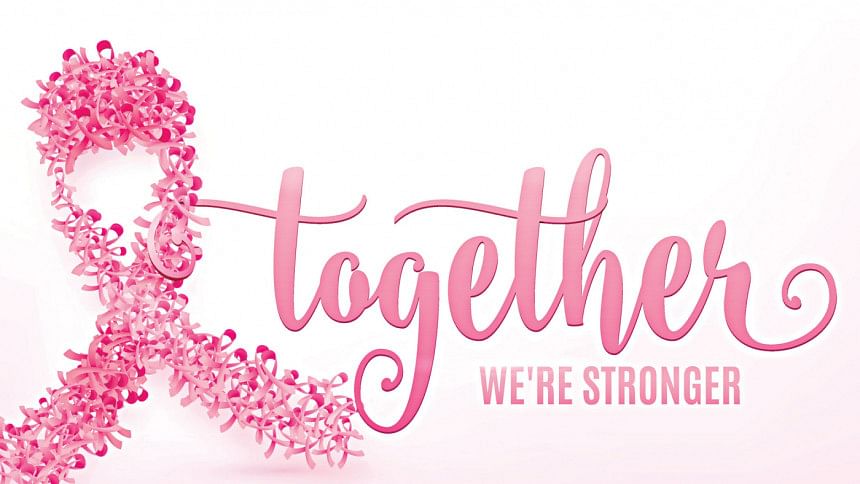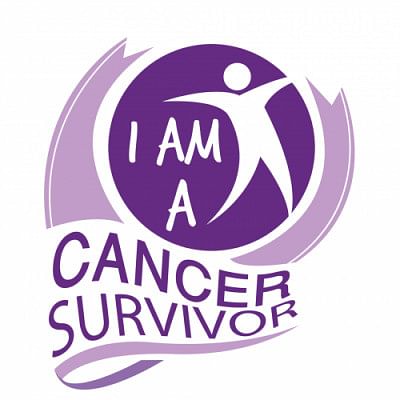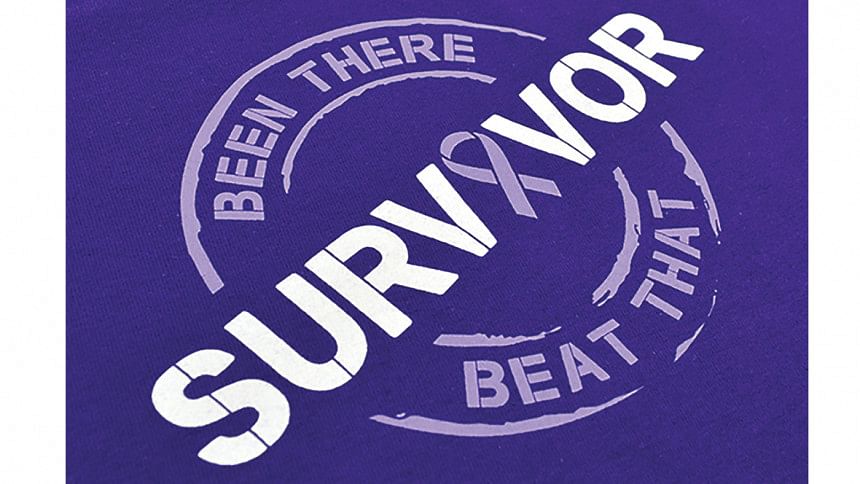Interview with a breast cancer survivor: Nabanita Islam

Breast cancer is not a topic discussed often, let alone the implications and emotions behind it. In lieu of breast cancer awareness month, The Daily Star sat down with Nabanita Islam to have a candid heart-to-heart as she tells her story.
Nabanita Islam is an assistant professor of architecture at the University of Asia Pacific, currently, on study leave, as she pursues her PhD in Singapore. She is also a breast cancer survivor.
How did you first find out you have breast cancer?

I first detected the lump in October 2017 while I was busy with my PhD. However, I did not immediately go for detection because I had a lot on my plate with the end of semester pressure, etc. so by the time I actually got the confirmation, it was January 2018.
What was your first reaction when you got the news?
My cancer was discovered in-between stages 2 and 3 and my first reaction was pretty normal — my doctor was expecting a dramatic 'crying out loud' reaction but nothing of that sort actually happened.
It was more, 'Oh okay! It's malignant! What's next?' because I had mentally prepared myself for the news.
Were there any warning signs before?
Not really. I didn't have any family history and I was not even 40! So, I had no reason to be alert.
What happened after your diagnosis?
We decided on treatment in Singapore because I was a student there and I had perks such as insurance. I was also living there with my husband and son. As for the treatment, in short, I had to go through a round of chemotherapy, the surgery and then another round of chemotherapy. Afterwards, I went through some radiotherapy as well a hormone therapy which I'm still taking and would be for the next 7 years.
What is one thing you wish you knew before you started treatment?
I was fortunate because I was given doctors that preferred to explain everything to me in detail. I knew every bit of the treatment, the why as well as all the other options available.
My only regret is that once you go through these treatments, you cannot conceive again. And while I was told about this and advised to freeze my eggs, I really did not give it any serious thought. And now I have no options.
What was the main obstacle in your journey?
Physically, it is very stressful, and exhausting. It takes a toll on your whole body. You look in the mirror and don't recognise yourself.
And emotionally, the lethargy really threw me off. I used to be a really energetic person before the treatment. It was difficult for me to accept that I cannot even get out of bed like a normal person. Even a few steps would tire me out.
Who was your biggest support system?
My husband and son were my biggest support system. They were there for me physically, and emotionally. I also had a wonderful bunch of friends that would keep in contact with me, uplift me, making sure I was not feeling lonely.

What was your revelation during the entire process?
We often brag about how we do not care about our looks but it is very difficult to know how your inner self is going to react when your look is seriously getting affected. For me, the first time my husband shaved my hair, I realised that I am actually, truly, least bothered about my looks.
I was truly devastated when I lost my sense of taste. Now, I am a foodie and all the food tasted like grass! And I had heard that for some patients, it lasts their entire lives. I realised that clearly I cared more about food than my looks!
Has your perception of yourself or your relationship with your body change after the whole ordeal?
Yes, it changed a lot. I was not a very beauty conscious person, but I used to frequent beauty salons and I would spend most of the time on my hair. And after the whole ordeal, this just seemed very trivial for me. For me, the simple joys of breathing, tasting food, moving without obstacles are more blissful now than how I appear outward.
What would you name this chapter of your life?
It would be How I Became a Coconut!
As I gradually cut my hair shorter and shorter to prolong the dreaded shave, my hair resembled an ostrich with patches of hair missing! One day, my son told me that I looked simply terrible! And that was when I realised that I should shave my head. My son was utterly amazed by my bald head and to ease him, my husband promptly said, 'See! Momma looks like a coconut!'
Any advice to women?
Firstly, realise that cancer is not a death sentence — especially breast cancer.
Secondly, do not lose hope. Cancer is not a deterrent and just because you have breast cancer does not mean your life is over. And lastly, realise that nothing is more important than your own health. Prioritise that because there are things that you can overcome if you have a healthy body.
Photo: Collected

 For all latest news, follow The Daily Star's Google News channel.
For all latest news, follow The Daily Star's Google News channel. 



Comments